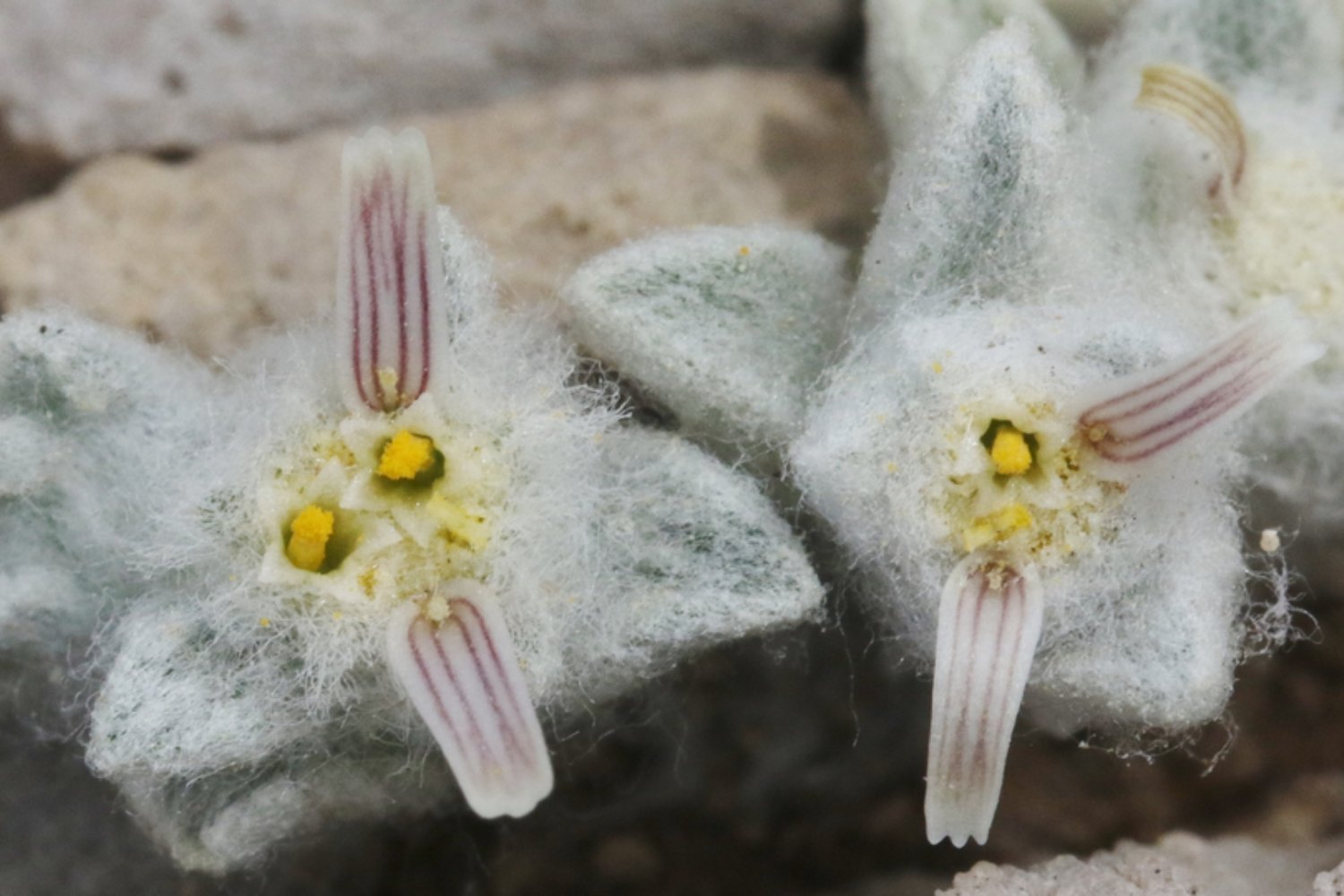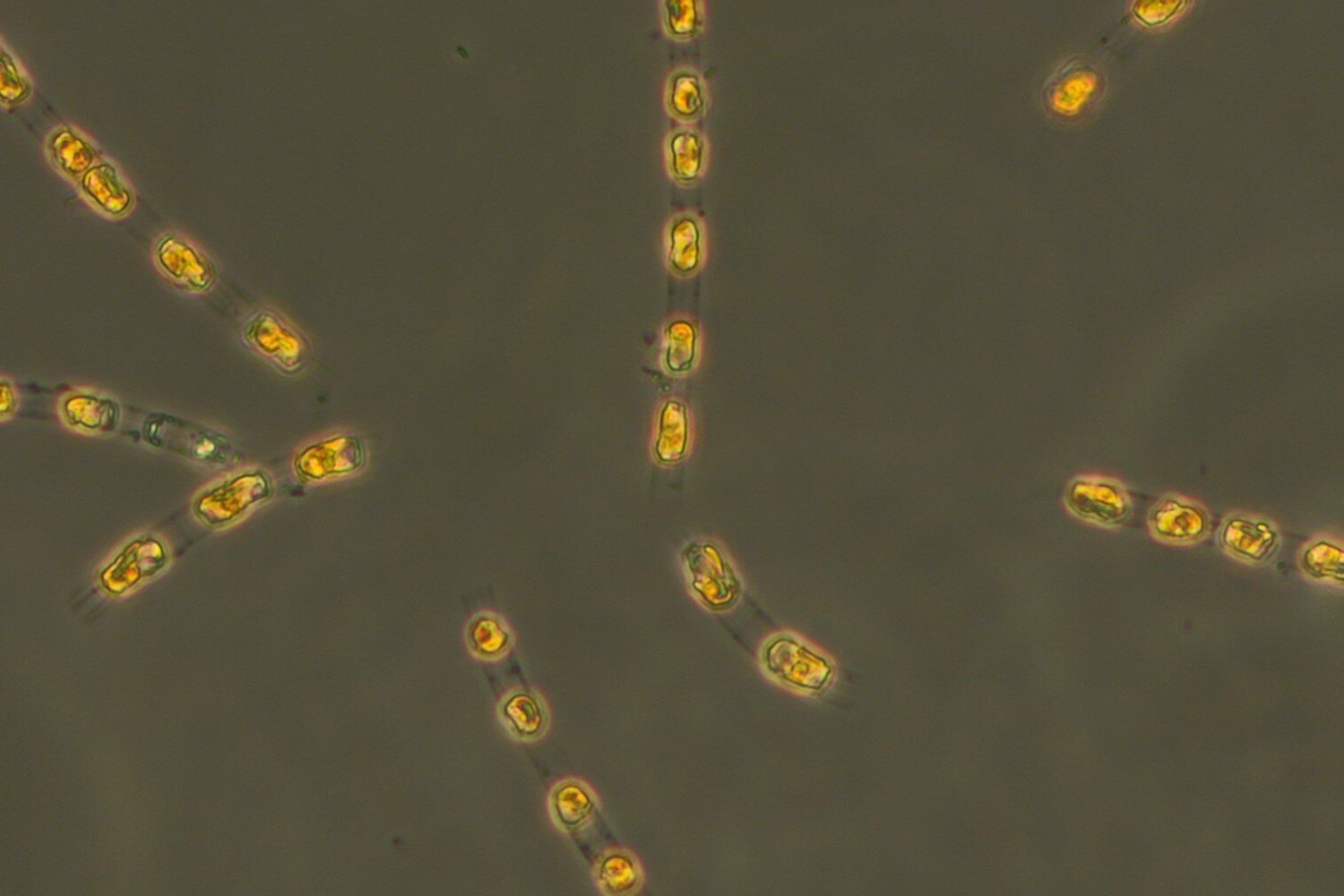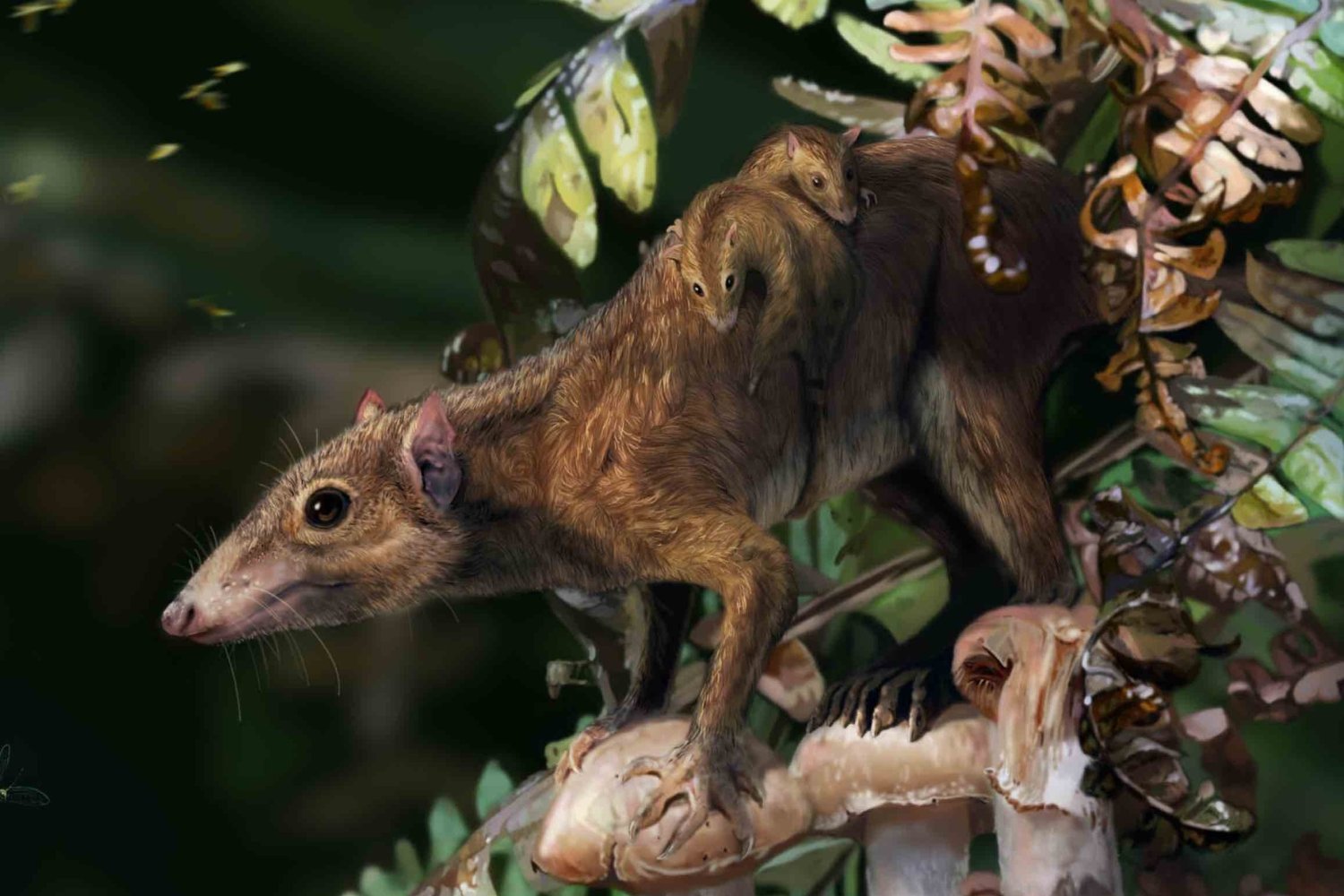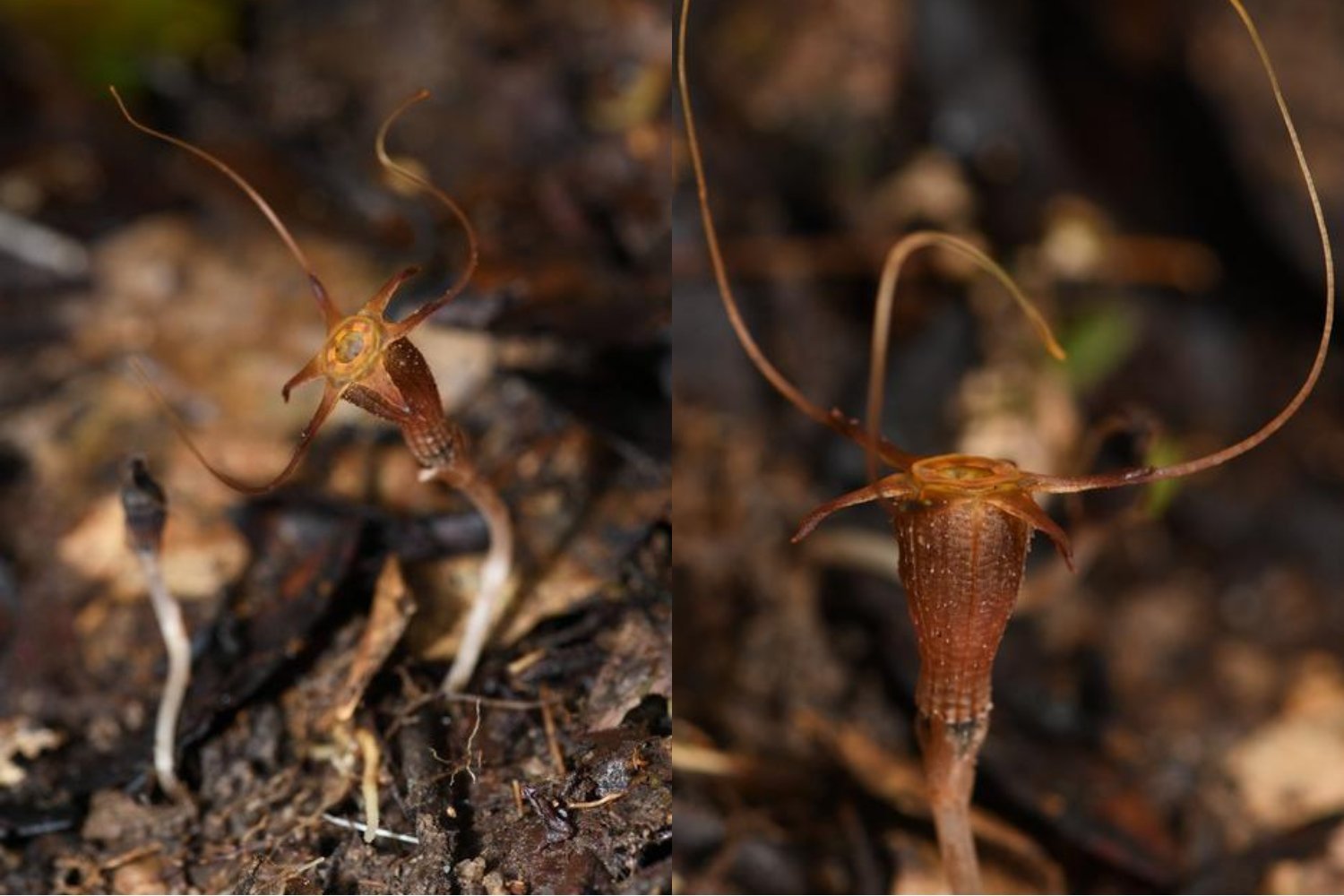The “wooly devil,” a previously unknown plant species, has been discovered in Texas’ Big Bend National Park. This marks the first time a new plant genus and species has been identified in a U.S. national park in nearly 50 years. The discovery highlights the remarkable biodiversity still hidden within even well-studied areas.
The new species, scientifically named Ovicula biradiata, is a member of the sunflower family, although its appearance differs significantly from its more recognizable relatives. The finding, published in the journal PhytoKeys, underscores the importance of ongoing botanical research and conservation efforts in protected areas.
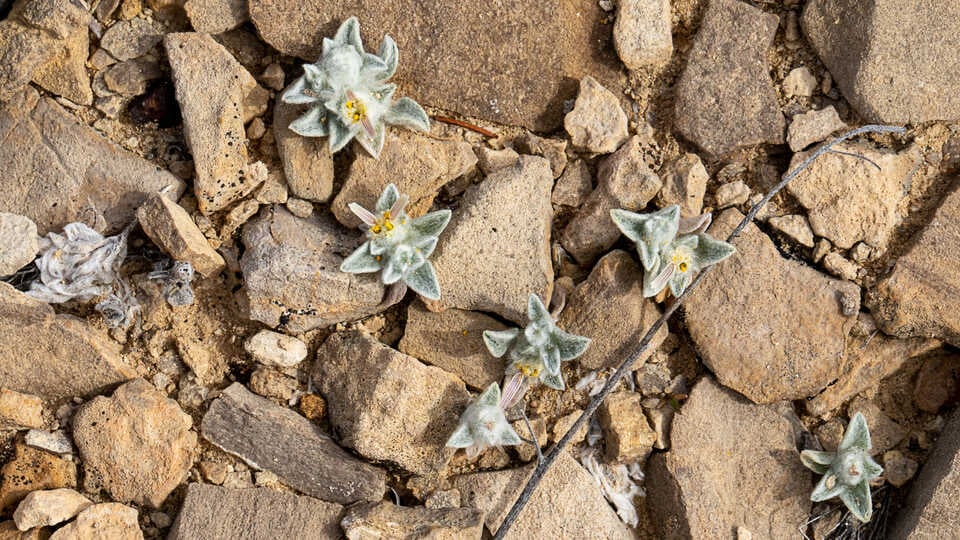 Woolly DevilsA close-up view of wooly devils growing in their rocky habitat within Big Bend National Park.
Woolly DevilsA close-up view of wooly devils growing in their rocky habitat within Big Bend National Park.
Unveiling the Wooly Devil: A Unique Sunflower
Unlike typical sunflowers with their bright, sun-like appearance, O. biradiata is a small, fuzzy plant. Its distinct characteristics justified the creation of not just a new species name, but an entirely new genus. This underscores its unique evolutionary position within the sunflower family.
The discovery was initiated by a park volunteer using the iNaturalist app in March 2024. The wooly devil has furry white leaves and maroon-striped ray florets, the petal-like parts of the flower head. It’s nicknamed a “belly plant” due to its low-growing nature, often requiring observers to lie down for a closer look.
 Botanist Observes Woolly DevilPark botanist Carolyn Whiting documents the wooly devil’s characteristics within its natural habitat.
Botanist Observes Woolly DevilPark botanist Carolyn Whiting documents the wooly devil’s characteristics within its natural habitat.
A Desert Dweller Facing Climate Change Challenges
The wooly devil thrives in rocky, dry habitats within Big Bend National Park and blooms only after rainfall. Desert plants like the wooly devil have evolved unique adaptations to survive extreme conditions. However, these specializations make them particularly vulnerable to the increasing heat and dryness brought on by climate change. The limited distribution of the wooly devil, found only in three small areas at the park’s northern edge, raises concerns about its long-term survival.
Naming and Future Research
The scientific name Ovicula biradiata is derived from the Latin “ovicula” meaning “tiny sheep,” referencing the plant’s woolly leaves and the park’s bighorn sheep. “Biradiata,” meaning “bi-radial,” describes the plant’s distinctive maroon stripes on its ray florets. Researchers are eager to learn more about the wooly devil’s life cycle, reproductive processes, and potential distribution beyond its currently known locations within the park.
Potential Medicinal Properties
Initial research has revealed the presence of glands on the wooly devil similar to those found in other sunflower family members known to possess anti-cancer and anti-inflammatory properties. While further research is needed to confirm these properties in the newly discovered species, this discovery highlights the importance of biodiversity conservation and the potential for new discoveries in fragile desert ecosystems.



